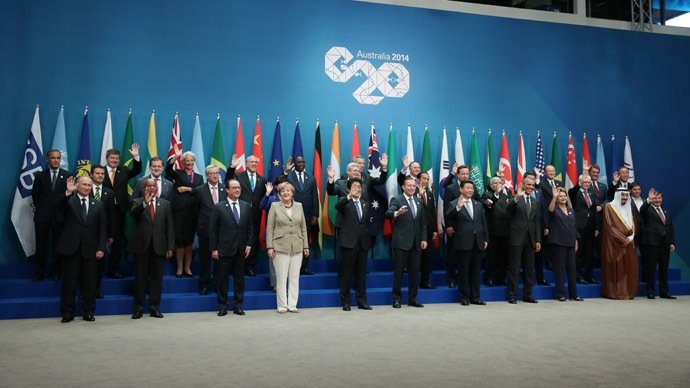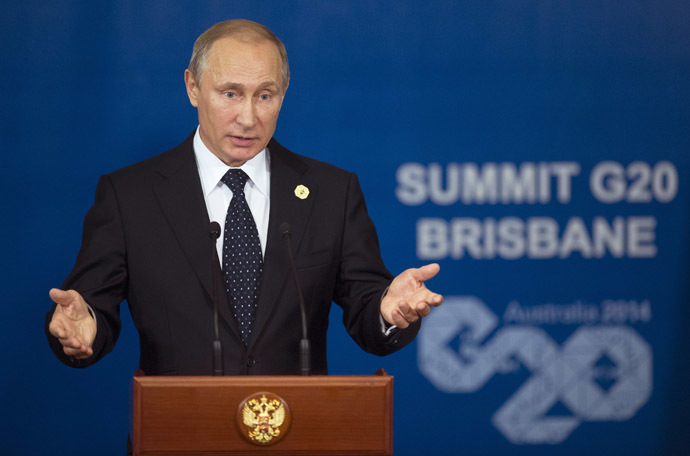What Brisbane G20 summit showed

President Vladimir Putin stressed at the final news conference at the recent G20 summit in Brisbane that “the work took place in a very constructive atmosphere and was productive.”
Important agreements were reached, in particular on increasing by two percent the average rate of growth of the G20 economies by 2018, which should boost the world economy by $2 trillion; decisions were also made on fighting unemployment, improving financial and tax regulations, reforming international energy institutions and improving coordination on infrastructure projects
The Australian presidency focused on promoting private-public partnership. Such partnerships are increasingly common in Russia. The decision to create a global infrastructure hub was significant: it is assumed such a structure will make it possible to share best practice and experiences. Russia, which is already implementing a number of large-scale infrastructure projects, is willing to participate directly in this work.
Unfortunately, there was a lack of progress on reform of the global financial system, in particular the International Monetary Fund. It is no secret that the chief reason for delays in bringing about the reforms approved in 2010 was, and still is, the position of the United States. Such an attitude to agreed commitments as well as any attempts to politicize the work of this forum undermines confidence in it.
The meeting of BRICS leaders just before the G20 summit is now a tradition. In our view, this is a very good and useful practice. Such meetings make it possible to better coordinate the BRICS states’ approach to issues related to world trade and the financial system, as well as to determine how to react best to contemporary challenges in these areas. The G7 also engages in such coordination.
President Putin held a series of bilateral meetings with his counterparts in Brisbane, in which the subject of Ukraine dominated the discussions. The president outlined the well-known Russian approach towards a settlement of Ukraine’s internal crisis and his partners expressed their own assessments. In general, as the Russian President noted, the conversations were both frank and constructive. The topic of Ukraine was not discussed during the course of the official business of the summit, which, however, served as a platform for much-needed dialogue.

We are convinced that the G20 must continue as a mechanism for global crisis response and the coordination of collective decisions of a financial and economic nature, and that it must not become a place for political squabbles. This is especially so since the crisis remains a reality, however one may call it – the “new normal” or “new mediocre.” The leaders of various countries, including British Prime Minster David Cameron, rightly point to the threat of a new wave of global crises.
The so-called geopolitical risks, which can be created artificially, as in Ukraine, are exacerbating the situation. As John Mearsheimer, professor of political science at the University of Chicago wrote in the last issue of Foreign Affairs, the EU-Ukraine Association Agreement, “far from being routine, sounds like a backdoor to NATO membership.”
And former American diplomat and President of the Council on Foreign Relations Richard Haass likewise notes that “Russia could have been asked to join NATO, which would have little military difference.” As a result, the immense potential for cooperation between Russia and the European Union does not materialize. Interdependence means that we either win together or we lose together.
This is why the recent summit leads to the conclusion that the old geopolitics is especially costly in crisis conditions. It is necessary to choose the interests of development, which have moved to the top of international agenda.
The statements, views and opinions expressed in this column are solely those of the author and do not necessarily represent those of RT.
The statements, views and opinions expressed in this column are solely those of the author and do not necessarily represent those of RT.













